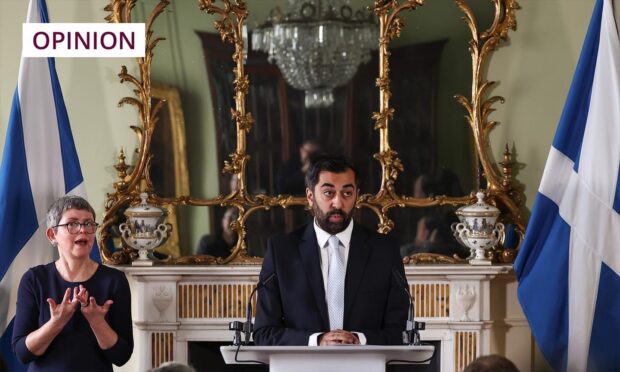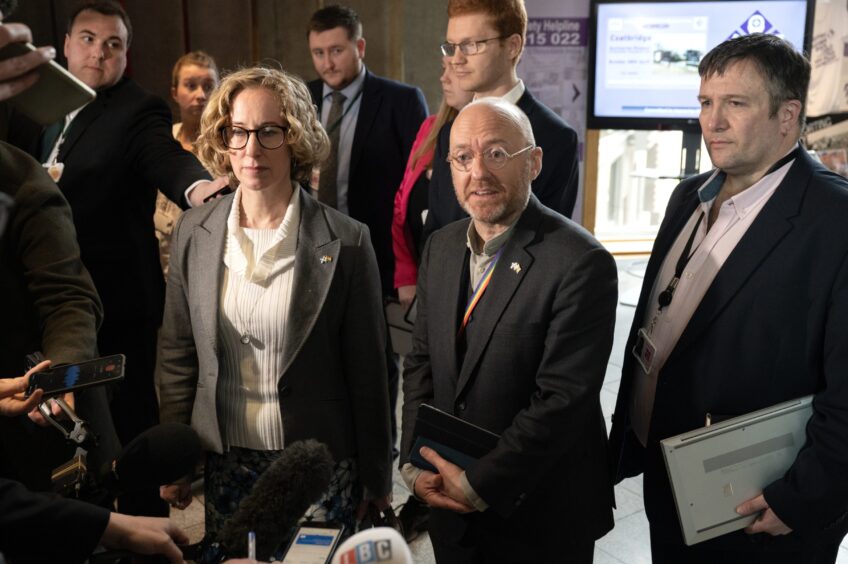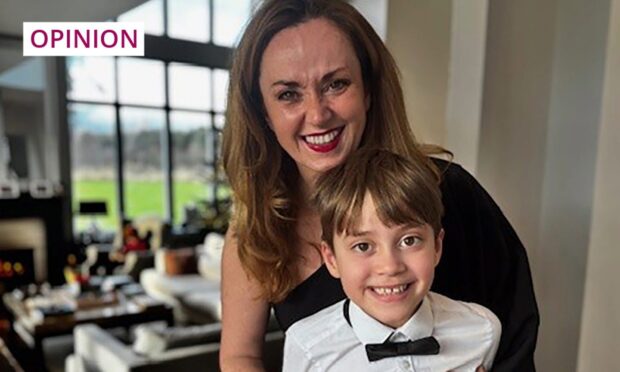Less than a week after the press conference to announce his decision to end the Bute House agreement, Humza Yousaf returned to the podium on Monday to announce his resignation as First Minister and SNP leader.
Last week, Humza Yousaf promised a “new beginning”. The speed with which that particular statement made contact with reality was dizzying.
The series of unforced errors that led to the First Minister’s resignation will haunt him, and his party, for some time to come.
In politics-speak, you’ll often hear analysts and advisors talking about the importance of getting in front of events. But pro-active crisis management doesn’t always work. It can sometimes make things worse. It can even topple a First Minister.
The news that the Greens were planning to put their partnership agreement with the SNP to their members for a vote undoubtedly spooked the SNP leadership. While no date was set for when the vote would take place, Humza Yousaf must have thought that whenever it did come, it wouldn’t go in his party’s favour.
The First Minister wanted to be the one to end the relationship. It wouldn’t be a good look for the mighty SNP to be dumped by a minority party.
Unfortunately, in the scramble to send out the divorce papers, it seems nobody in the First Minister’s inner circle bothered to crunch the numbers to see if they could afford it.
By ditching his partners in government, Humza Yousaf left himself vulnerable to a motion of no confidence.
The Scottish Conservatives quickly sought to capitalise on the First Minister’s self-inflicted wound and duly laid such a motion down.
What, you have to wonder, did Humza Yousaf think would happen next in this entirely predictable series of events? Did he think the Greens would handle such a sudden and brutal break-up with grace and composure? That there would be no hard feelings?
That might be how things work in the circles that Gwyneth Paltrow and Chris Martin frequent, but this is Scottish politics we’re talking about. There was never any prospect of a conscious uncoupling. It was always going to end in a rammy.
He acknowledged this error of judgement in his resignation speech, where he said that he had “underestimated the level of hurt and upset” the ending of the Bute House agreement would cause his Green colleagues.
Humza Yousaf has now paid the ultimate political price for his naivety. He hasn’t just lost power for himself, he has made the job of his successor that much more difficult.
New First Minister won’t be enough to end SNP’s troubles
It’s hard to imagine who among the names currently being touted as contenders has the ability to not only unite the factions of the party, but also win the support of the Scottish Parliament as a whole.
And that trouble won’t end with the election of a new SNP leader and First Minister. Even if the SNP manage to find a candidate that the Greens are willing to get behind, the new First Minister will have to play the numbers game on every piece of legislation they want to get through parliament. This is a feature, not a quirk, of our parliamentary system. It was designed with minority governments and collaboration in mind.
But opposition parties smell blood in the water. If – and it’s a big if – the new First Minister manages to hobble on for the next two years until the Scottish Parliament election, it will be a feat of endurance, rather than skill, that gets them there.
There’s also the matter of legitimacy. You don’t have to search for long to find past statements from senior SNP figures decrying the Tory habit of foisting new Prime Minister’s upon the UK without first consulting the electorate.
SNP members will once again choose Scotland’s next First Minister.
That person will inherit all the troubles of the Sturgeon era while also having to contend with those which developed during Yousaf’s stewardship of the party.
Humza Yousaf gambled big and he lost. His successor will now be left to pick up the tab.
Women should keep self-confidence of girls
A new report by the Young Women’s Trust has revealed the changes over 45s would make in their lives if they had the chance to go back in time.
Four in five of those surveyed said that they wish they had more confidence in themselves when they were younger, with “believe in yourself” being the top piece of advice they would give to their younger selves.
The confidence yo-yo of women and girls is something that has always fascinated me.
I love watching my daughter and her friends interact and play.
If you asked those girls what they are great at, they wouldn’t struggle to come up with an answer.
Whether it is art or gymnastics, writing stories or coding, they know exactly what their talents are. They find their strengths as easy to recall as their hair colour.
If you asked the same question of a group of young women, you would probably be met with nervous laughter, some umming and ahhing or a self-deprecating joke or two.













Conversation